This fall, Harvard Law School showcased the works of faculty, alums, and other affiliates at book events throughout the semester. The Harvard Law School Library continued its ongoing series of book talks featuring works by Stephen Breyer ’64, Cass Sunstein ’78, Mehrsa Baradaran, and Melissa B. Jacoby, while book discussions were also hosted by entities across the school, including the Program on Negotiation, the Berkman Klein Center for Internet and Society, the Petrie-Flom Center for Health Law Policy, Biotechnology, and Bioethics, and a number of student organizations. Here, we feature a selection of the book events that took place during the fall semester.
The Constitution of the War on Drugs
David Pozen
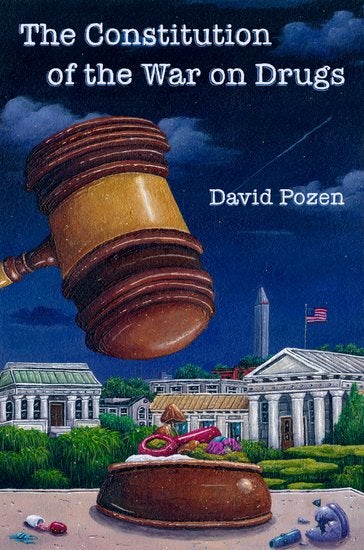
There are many legal arguments for less-restrictive drug laws. But one of the more creative posited was: If the Constitution allows for the right to travel, shouldn’t a “trip” on LSD be included?
While no court has bought this particular argument, drug laws have gone through changes since the ’60s and ’70s, and not always toward leniency. Author David Pozen examined the lost history of constitutional challenges to punitive drug laws in his new book, “The Constitution of the War on Drugs,” which he discussed with Jeannie Suk Gersen ’02, the John H. Watson, Jr. Professor of Law at Harvard Law School and a contributing writer for The New Yorker. The Nov. 21 event, hosted by the Petrie-Flom Center for Health Law Policy, Biotechnology, and Bioethics at Harvard Law School, was moderated by Mason Marks, who leads the Project on Psychedelics Law and Regulation at the Petrie-Flom Center.
Read full coverage on Harvard Law Today
The Quiet Coup: Neoliberalism and the Looting of America
Mehrsa Baradaran
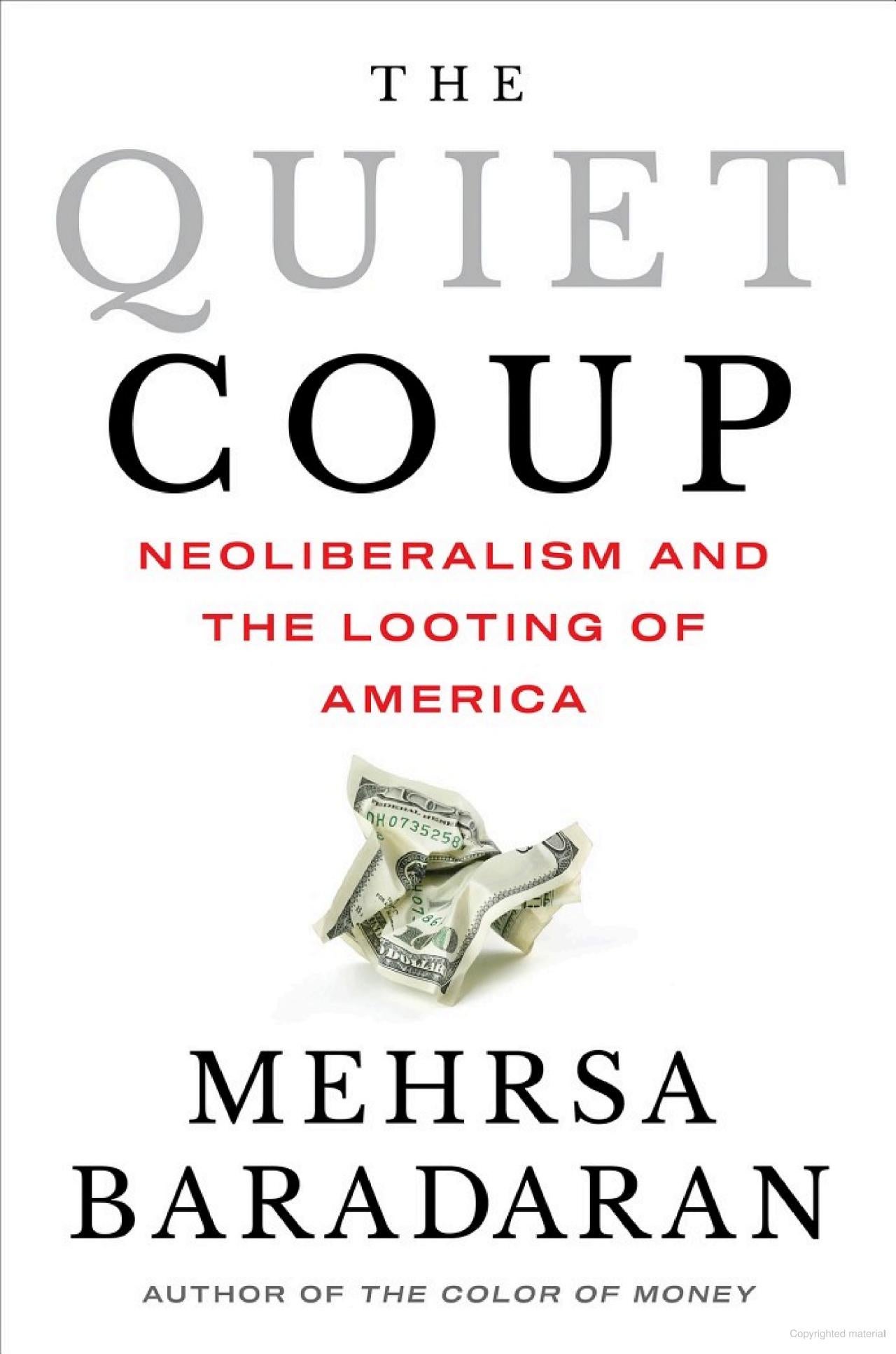
On Oct. 16, the Harvard Law School Library hosted author Mehrsa Baradaran for a discussion of her book, “The Quiet Coup: Neoliberalism and the Looting of America.” Baradaran is the Robert Braucher Visiting Professor of Law at HLS and a professor of law at UC Irvine School of Law.
From the publisher: “With the nation lurching from one crisis to the next, many Americans believe that something fundamental has gone wrong. Why aren’t college graduates able to achieve financial security? Why is government completely inept in the face of natural disasters? And why do pundits tell us that the economy is strong even though the majority of Americans can barely make ends meet? In ‘The Quiet Coup,’ Mehrsa Baradaran, one of our leading public intellectuals, argues that the system is in fact rigged toward the powerful, though it wasn’t the work of evil puppet masters behind the curtain. Rather, the rigging was carried out by hundreds of (mostly) law-abiding lawyers, judges, regulators, policy makers, and lobbyists. Adherents of a market-centered doctrine called neoliberalism, these individuals, over the course of decades, worked to transform the nation—and succeeded.”
Unjust Debts: How Our Bankruptcy System Makes America More Unequal
Melissa B. Jacoby
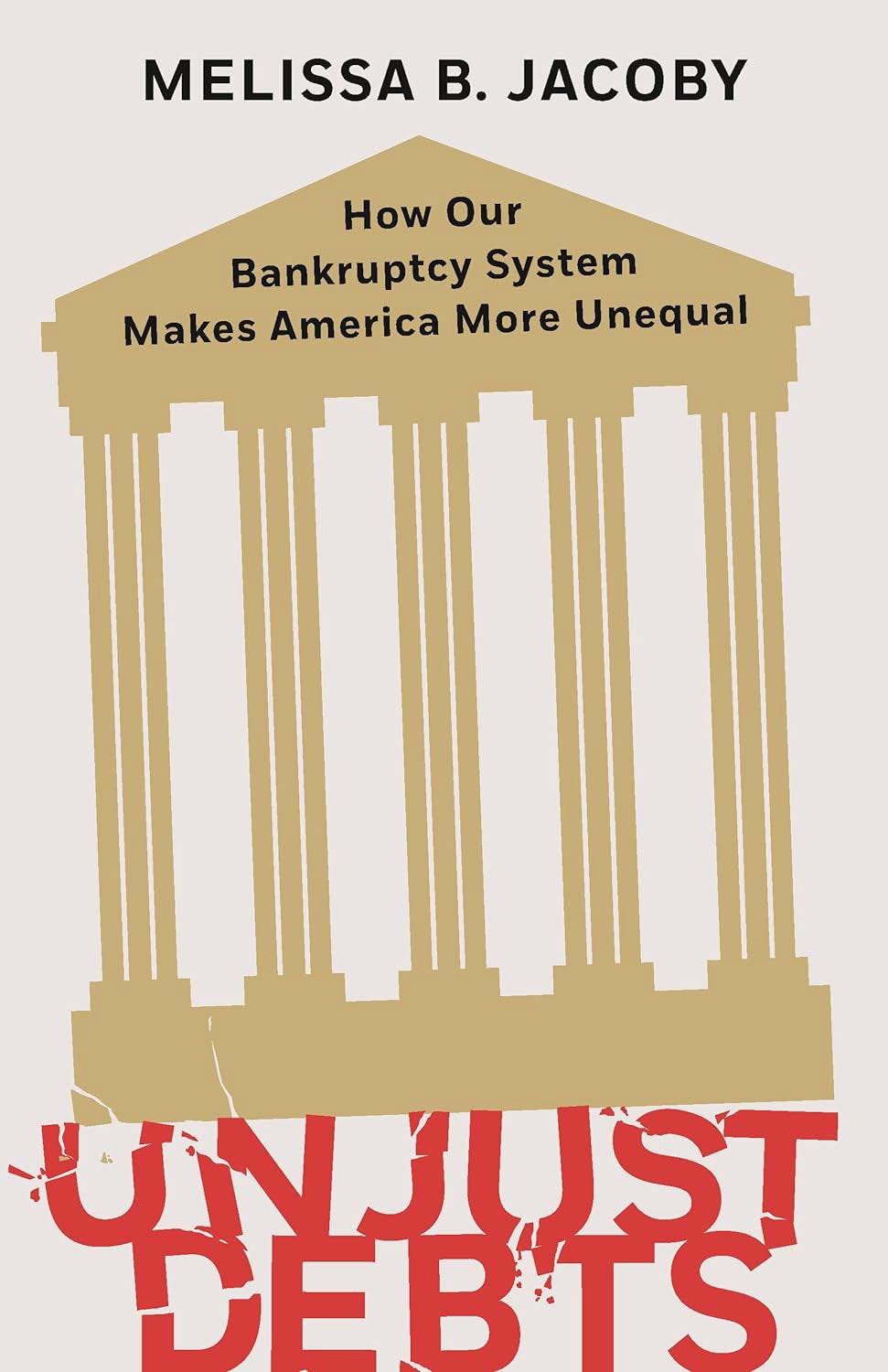
On Oct. 9, the Harvard Law School Library hosted Melissa Jacoby, the Sullivan & Cromwell Visiting Professor of Law at Harvard Law School, for a discussion of her book “Unjust Debts: How Our Bankruptcy System Makes America More Unequal.” Jacoby was joined by Mark Roe ’80, the David Berg Professor of Law at Harvard.
From the publisher: “In this brilliant and paradigm-shifting book, legal scholar Melissa B. Jacoby shows how bankruptcy has also become an escape hatch for powerful individuals, corporations, and governments, contributing in unseen and poorly understood ways to race, gender, and class inequality in America. When cities go bankrupt, for example, police unions enjoy added leverage while police brutality victims are denied a seat at the negotiating table; the system is more forgiving of civil rights abuses than of the parking tickets disproportionately distributed in African American neighborhoods. Across a broad range of crucial issues, ‘Unjust Debts’ reveals the hidden mechanisms by which bankruptcy impacts everything from sexual harassment to health care, police violence to employment discrimination, and the opioid crisis to gun violence.”
Reading the Constitution: Why I Chose Pragmatism, Not Textualism
Stephen Breyer
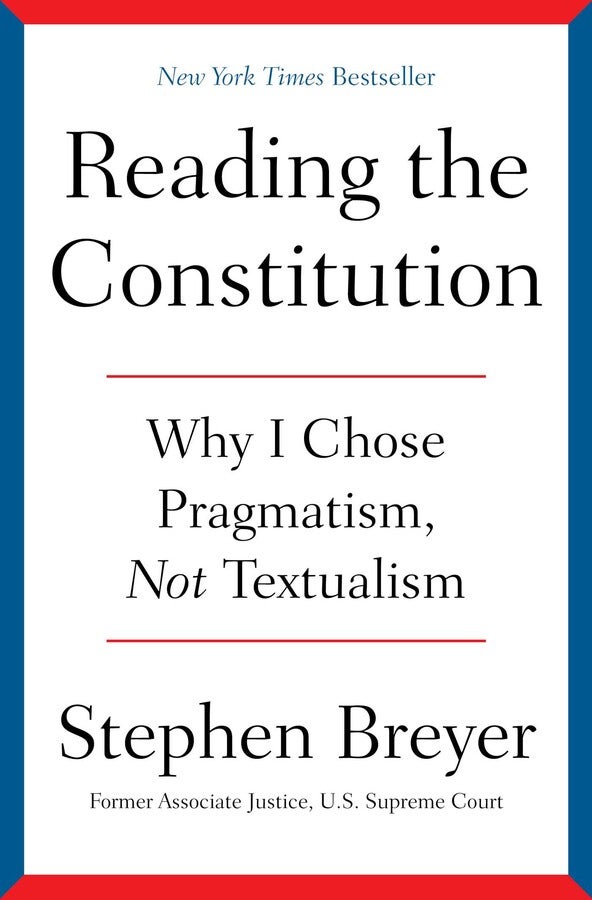
On Oct. 2, the Harvard Law School Library hosted Stephen Breyer ’64, retired associate justice of the U.S. Supreme Court, for a discussion on his recent book “Reading the Constitution: Why I Chose Pragmatism, Not Textualism.”
Over the course of the discussion, Breyer shared his perspectives on the role of appellate courts, the importance of state law, and his time as a Supreme Court justice with Martha Minow, the 300th Anniversary University Professor and former law school dean, and with an in person and online audience.
Despite serving on federal courts for more than four decades, Breyer seemed to play down the importance of their role in American life. Speaking to the students in the audience, he asked why they spend their first year in law school mostly learning about various aspects of state law, such as contracts and property.
“Because that’s where the law is made,” he said, answering his own query. Americans who want to influence the laws that most affect themselves and their families should skip a trip to Washington, D.C., and instead move to state capitals like Sacramento, advised Breyer, who lived and worked inside the Beltway for the better part of half a century, beginning in 1973, when he served as an assistant special prosecutor on the Watergate case.
Read full event coverage on Harvard Law Today
Campus Free Speech: A Pocket Guide
Cass Sunstein
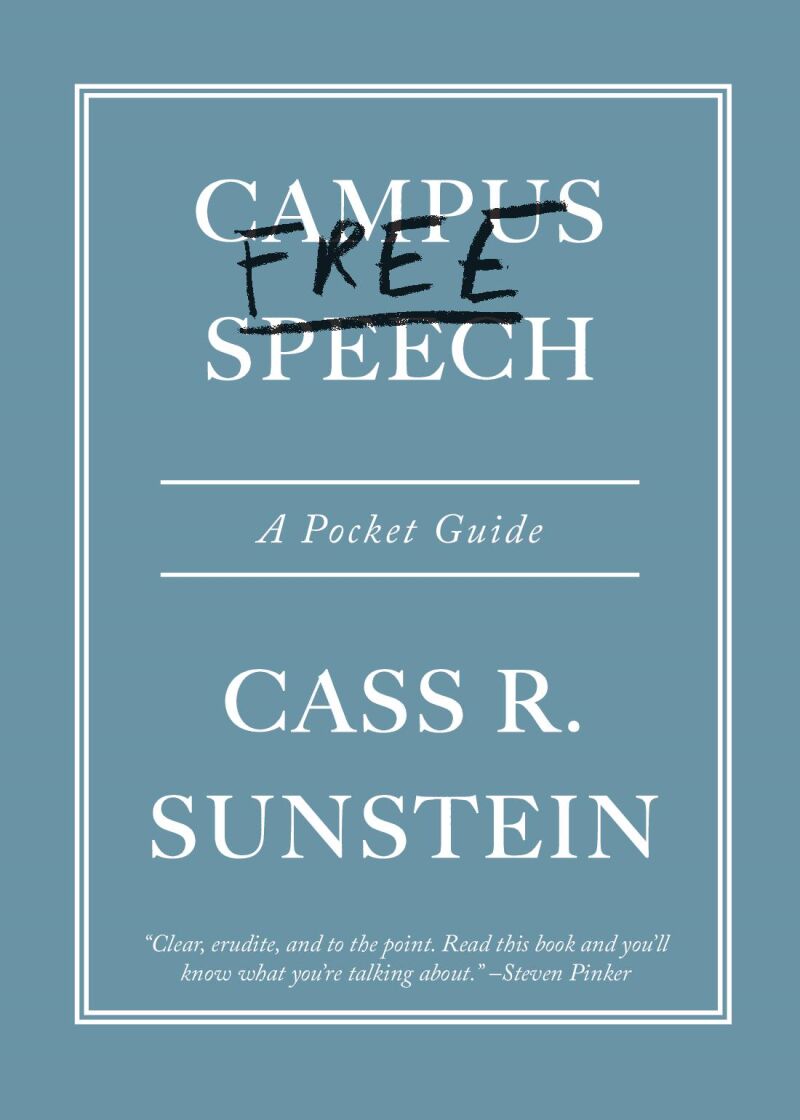
On Sept. 10, the Harvard Law School Library hosted Cass Sunstein ’78, Robert Walmsley University Professor at Harvard, for a discussion of his recent book, “Campus Free Speech: A Pocket Guide,” “a concise, case-by-case guide to resolving free-speech dilemmas at colleges and universities.” Sunstein was joined in conversation by Harvard Law Professor Benjamin Eidelson.
From the publisher: “In this pragmatic, no-nonsense explainer, Cass Sunstein takes us through a wide range of scenarios involving students, professors, and administrators. He discusses why it’s consistent with the First Amendment to punish students who shout down a speaker, but not those who chant offensive slogans; why a professor cannot be fired for writing a politically charged op-ed, yet a university might legitimately consider an applicant’s political views when deciding whether to hire her. He explains why private universities are not legally bound by the First Amendment yet should, in most cases, look to follow it. And he addresses the thorny question of whether a university should officially take sides on public issues or deliberately keep the institution outside the fray.”
Read coverage in the Harvard Gazette
Fearless Speech: Breaking Free from the First Amendment
Mary Anne Franks
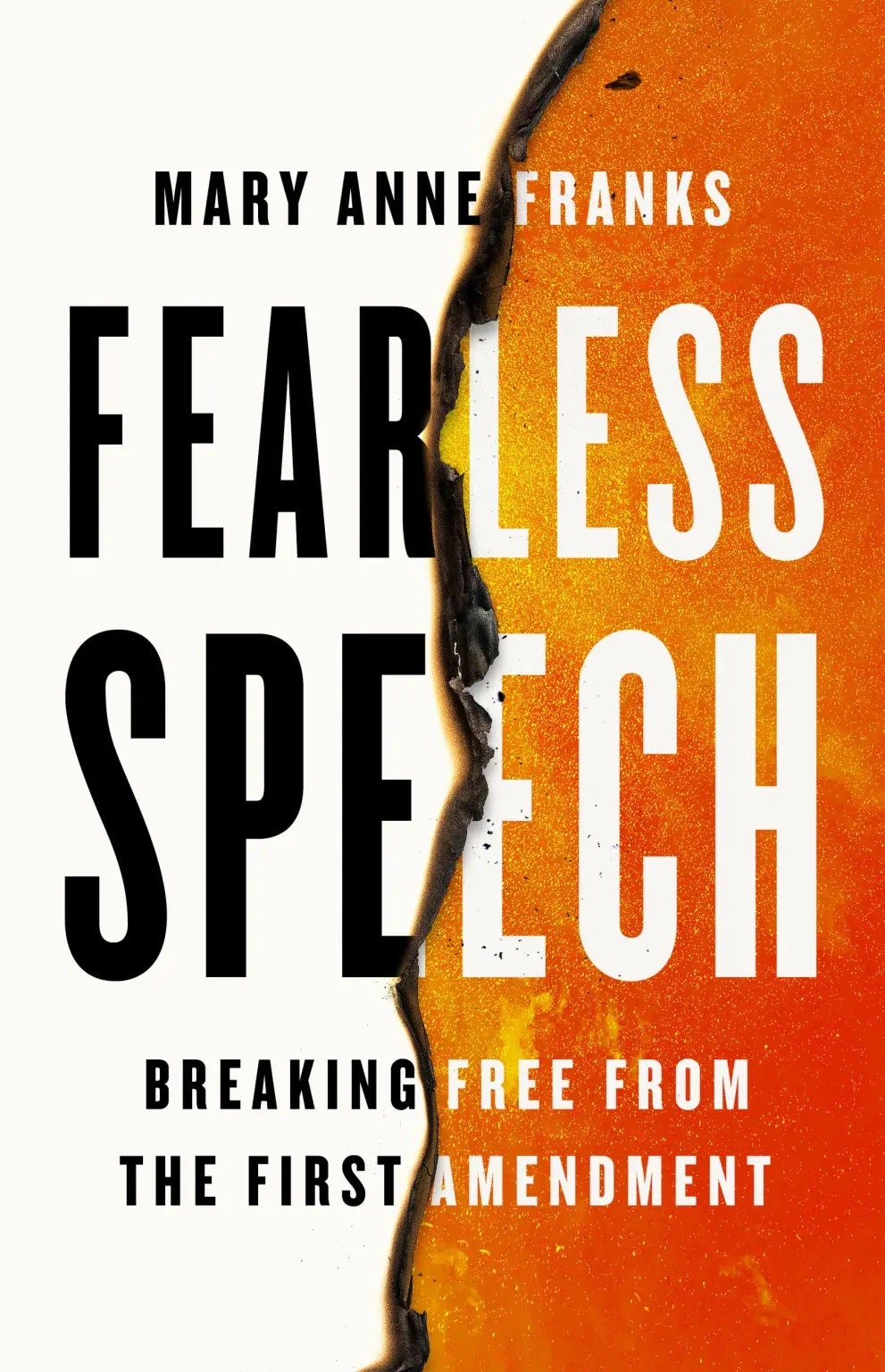
“Freedom of speech has never been more important—or more controversial. From debates about what’s permissible on social media, to the politics of campus speakers and corporate advertisements, the First Amendment is incessantly in the news and constantly being held up as the fundamental principle of American democracy. Yet, in reality, it has contributed more to eroding our democracy than supporting it,” said Mary Anne Franks ’07, the Eugene L. and Barbara A. Bernard Professor in Intellectual Property, Technology, and Civil Rights Law at the George Washington University Law School.
The Berkman Klein Center’s Institute for Rebooting Social Media welcomed Franks to Harvard Law School on Oct. 23 to discuss her new book, “Fearless Speech: Breaking Free from the First Amendment,” in which she emphasized the distinction between what speech a democratic society should protect, and what speech a democratic society should promote — particularly online. BKC Faculty Director Jonathan Zittrain ’95 moderated the event.
Deals: The Economic Structure of Business Transactions
Guhan Subramanian
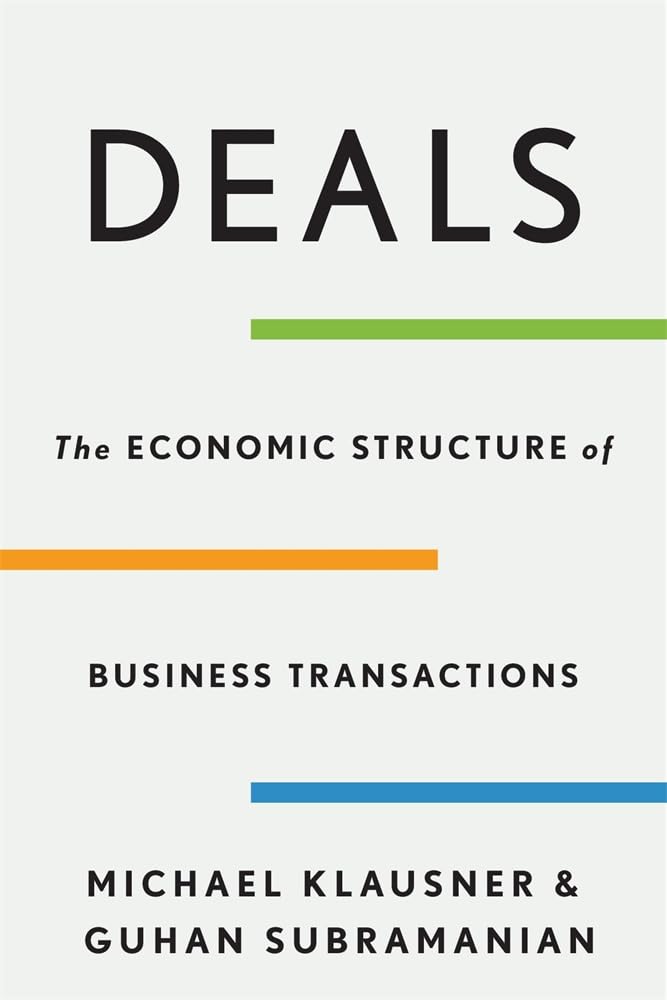
Business contracts have gotten longer and more complicated over the last few decades, but it’s not because lawyers are padding them with “legalese” or fluff to justify their role, said Guhan Subramanian J.D./M.B.A. ’98, Harvard Law School’s Joseph H. Flom Professor of Law and Business.
“What’s really going on is lawyers and transactional planners and businesspeople are trying to solve some core economic problems” before the deal is sealed, said Subramanian, speaking at a Sep. 10 event hosted by the Program on Negotiation, which he chairs.
Subramanian’s talk drew from his recent book, “Deals: The Economic Structure of Business Transactions,” written with Michael Klausner of Stanford Law School. The work, Subramanian said, examines some of the biggest barriers that prevent negotiators from finding their “zone of possible agreement” — in other words, the range of terms on which all sides can agree — and how specific contractual elements can address those issues to get to a “yes.”
Read Harvard Law Today’s full coverage
Want to stay up to date with Harvard Law Today? Sign up for our weekly newsletter.
